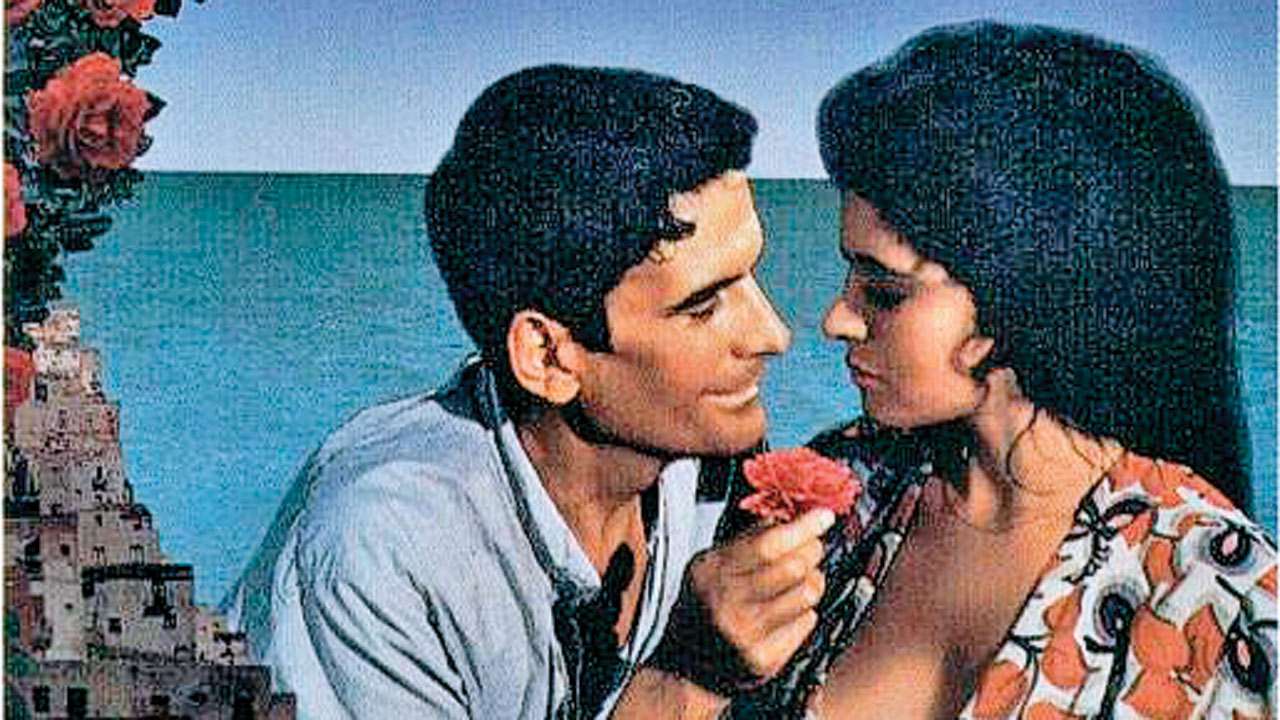
The film begins with the vignette of an island and then the frame shifts to Mario, the protagonist, holding a postcard from America that has the picture of a house and a car, a visual metaphor for the land of possibilities. This is cleverly juxtaposed with a hand pump in his home that has run dry, just as the choices in his life.”
Simplicity is an element that can greatly enhance the depth of art at times. Such is the case of the delightful Il Postino, (1994), a poetic film about metaphors, and poetry. Director Michael Radford’s first Italian film is imbued with admirable grace and unusual quietness. The film is set in a remote island of the Mediterranean; water shortages are many, the people are generally poor, catholic and fundamentalist in their views.
Mario Ruoppolo (Massimo Troisi) is a somewhat timid person who seems to be growing apart from his father, a fisherman, whose main preoccupations are silence and eating. When in 1953, the popular Chilean poet Pablo Neruda (Philippe Noiret) arrives there in an exile from his home country due to his communist views, Mario is offered a new job as his postman. The wages are rather low, but Mario will do anything in order to get away from his mundane life. He discusses the poetry with the village postmaster, a communist who supports Neruda for his political ideas and calls him the people’s poet.
Mario finds in Neruda the providential mentor he needs to fulfill his aspiration of becoming a poet. Although the primary goal of Mario was to woo Beatrice (Maria Grazia Cucinotta), a beautiful lady he fell in love with, Mario discovers a far more multi-dimensional meaning of poetry With the help of Neruda, Mario improves his skills to the point that he attempted later to write his own poems.
Mario and Pablo Neruda are a very odd couple. Mario is rather shy whereas Neruda is a powerful man, married to a beautiful wife. Mario reads Neruda’s poetry, is bemused by the imagery and cautiously broaches the question: what is a metaphor Mildly reticent, Neruda recites a cliche, ‘the sky weeps’, and Mario immediately understands the metaphor for rain. “When you explain poetry, it becomes banal” Neruda tells him.
Mario: I’d like to be a poet too.
Neruda: No, it’s more original being a Postman.
Mario: How do you become a poet?
Neruda: Walk along the shore all the way to the bay.
Mario: And will they come to me...these metaphors?
Neruda: Certainly.
And they do. Soon Mario is writing metaphors, poetry, in a notebook, reflections on his beach walks. It’s interesting to note the number of visual “metaphors” that help bind the narrative to its theme: The poet’s cottage on the mountain, the island, Our Lady of the Sorrows on the fishing boat, etc. From Neruda, Mario learns the power of words, and as the viewers see his interest in such things, they discover that, had he not been raised in such poverty, he may have been a brilliant poet himself.
When Mario falls in love in the town bar with the seemingly unreachable Beatrice, he immediately seeks help in Neruda and tells him to write a poem about her. Mario’s first overture to Beatrice is “your smile spreads across your face like a butterfly ”and she finds this irresistible. In another memorable scene her aunt chides Beatrice as she lies on her bed and then pronounces, “When it comes to bed, there is no difference between a poet, a priest, or even a communist!”
After Neruda returns to Chile, the politicised Mario is killed during a riot at a rally where he was invited to read his poetry. But before this the Postman wins his Beatrice, gets married, wants to call his first child ‘Pablito’ in honour of his mentor but becomes mildly disillusioned when there is no further word from Neruda except news of his successes in the newspapers. One day a letter comes from Neruda’s secretary requesting that certain items left in the cottage be forwarded to Chile; Mario finds the dictaphone, prepares a poetic message of sound bytes (the ocean, the wind, the church bell, his unborn child’s heartbeat). The use of montage here is excellent and in fact enhances the emotional intensity as we learn of Mario’s ultimate fate through Neruda as he revisits the bay and beach of their dreams
Perhaps one of the film’s greatest assets is the collection of the themes it uses, and how they’re all used : poetry, love, friendship and humour. The acting is sublime. Massimo Troisi, who postponed heart surgery in order to act in the film and died one day after filming had wrapped, gives a truly brilliant and sincere performance.
Rich in its dense message and rewarding in terms of cinematic value, Il Postino is a film so enchanting I cannot believe anyone not liking it. Lush and stunning, the film contains images and scenes that are memorable and are brilliantly executed at the same time. Magnificently directed, finely acted and exquisitely told, Il Postino is a film both optimistic and heartwarming that is certain to elicit more than just one smile. Its lyrical gentleness is hard to oppose. Watch it for its quietness and gentle grace.
The author is a poet, editor and a translator